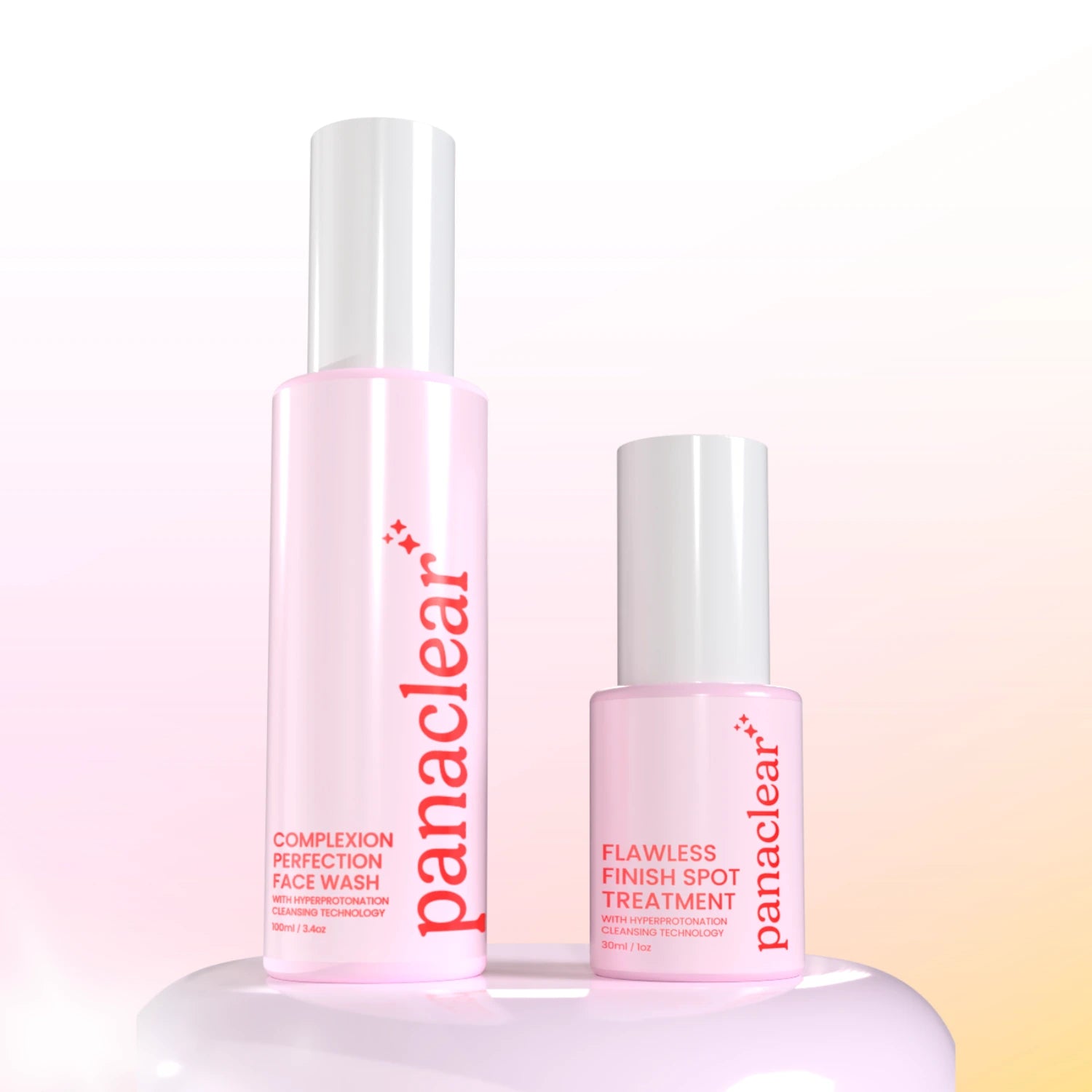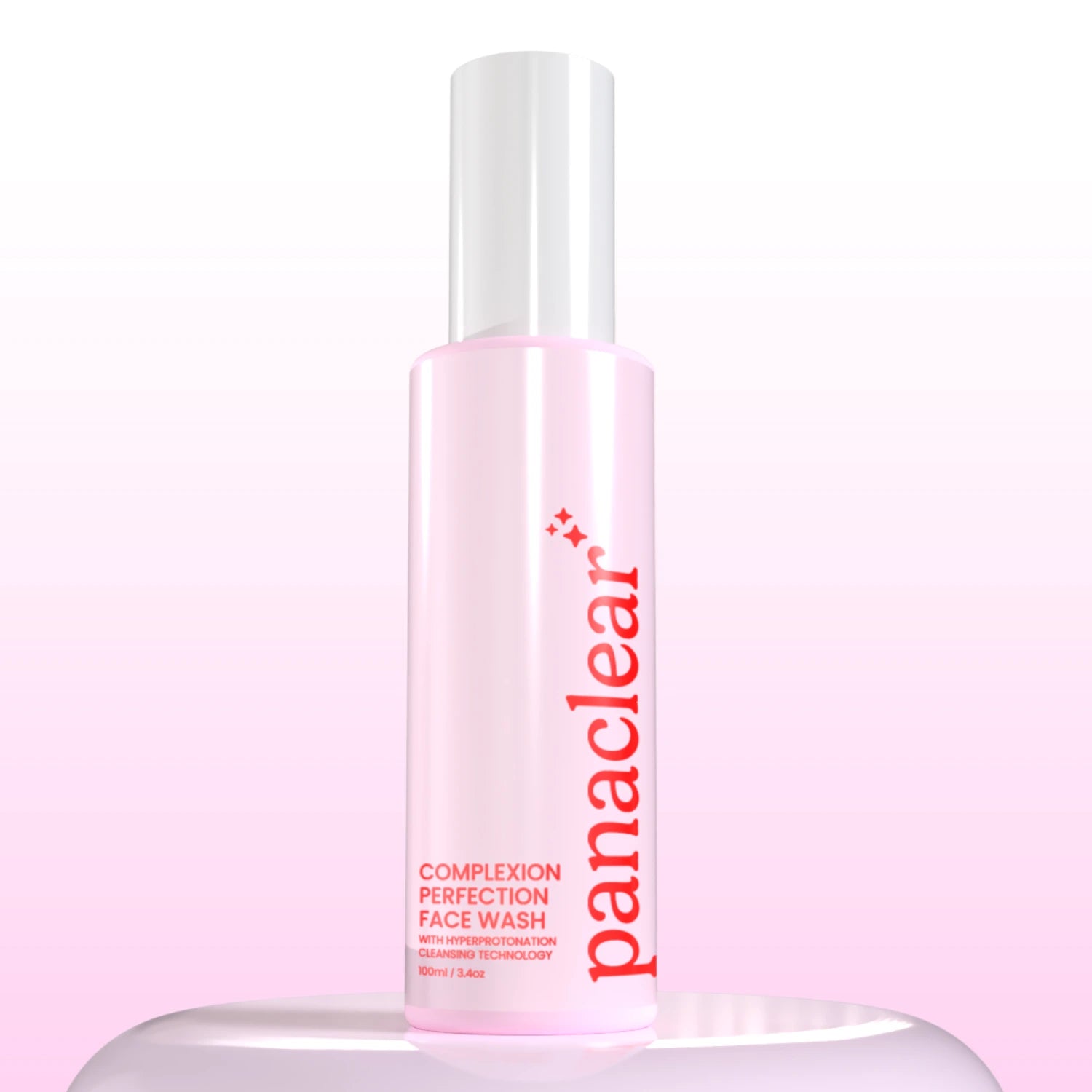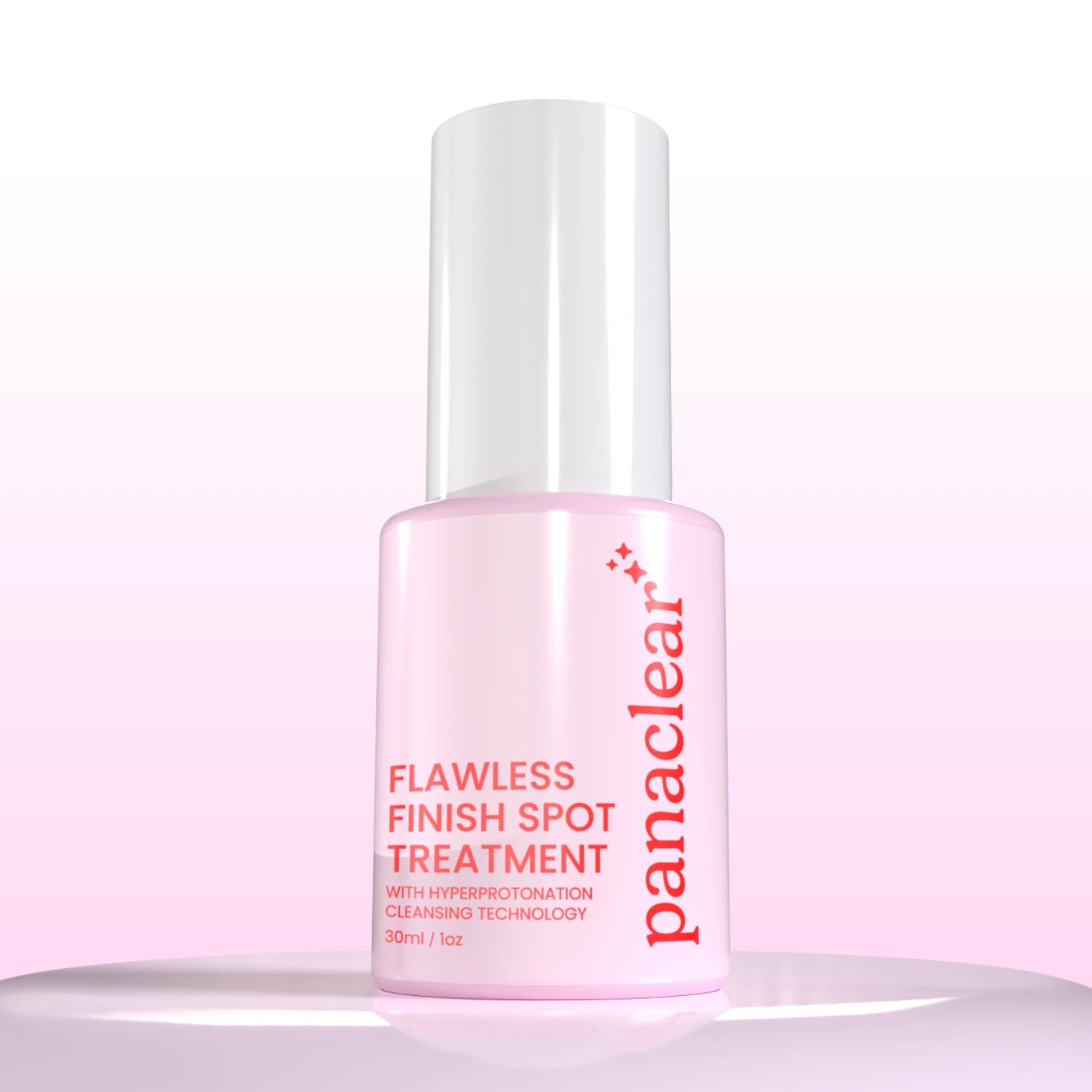Biofilm In Skincare: How Does It Affect My Skin?
What Is Biofilm and Why Does It Matter in Skincare?
Beneath the surface of many stubborn breakouts lies a structure called biofilm. Think of biofilm as an invisible shield for bacteria a slimy, glue-like substance that bacteria secrete to stick together and protect themselves. In reality, a biofilm is made of substances like proteins and complex sugars collectively known as extracellular polymeric substance (or EPS) and the bacteria inside. This combination of EPS and bacteria creates a bacterial community that is much tougher to reach with ordinary cleansers compared to non-biofilm, also known as planktonic, bacteria.
Biofilm has been studied extensively in medical and environmental sciences but only recently has its role in skincare begun to be discussed as a matter of importance. It explains why some blemishes return despite careful routines and why traditional cleansing may fall short.

How Biofilm Affects Your Skin's Appearance
Biofilm acts like a small city for bacteria. Inside, microbes communicate, share resources, and resist external challenges including soaps, cleansers, and your immune system. On skin, this means bacteria can persist in a way that disrupts the natural balance of the microbiome, contributing to recurring breakouts by making bacteria that would be typically easy to control ultra-resistant.
This protective layer can also block active ingredients in skincare products from reaching their bacterial targets, limiting their effectiveness. Research backs this up: as one study, Biofilm formation by Propionibacterium acnes is associated with increased resistance to antimicrobial agents and increased production of putative virulence factors notes, “P. acnes cells grown in a biofilm are more resistant to antimicrobial agents than planktonically grown cells... Benzoyl peroxide alone had no effect on P. acnes biofilms... Our data also show that sessile P. acnes cells are more resistant to antimicrobial agents than planktonic cells. This could help explain the frequent failure of antimicrobial therapy in the treatment of acne.” (Coenye, Peeters, & Nelis). In other words, the same ingredient that wipes out free-floating bacteria can struggle once those microbes are shielded inside a biofilm, one reason breakouts can feel so stubborn.
"Our data also show that sessile [biofilm encapsulated] P. acnes cells are more resistant to antimicrobial agents than planktonic [free-floating] cells. This could help explain the frequent failure of antimicrobial therapy in the treatment of acne."

The Science of Targeting Biofilm: Hyperprotonation Technology
Panaclear's approach to anti-acne skincare uses hyperprotonation technology: a process we invented that creates a proton-rich environment to gently dismantle biofilm without the use of harsh chemicals. By lowering the pH to a skin-friendly acidic range (around 4.5 to 5.5), this technology increases biofilm's membrane permeability, breaking it apart using a physical cleansing process, not a chemical one. This helps us deliver you with clearer looking skin without stripping your skin's barrier.

Complexion Perfection Face Wash
pH balanced biofilm-targeting cleanser for calmer, clearer-looking skin.
SHOP NOWThis allows our cleanser to actually reach the bacteria hidden beneath the biofilm shield, supporting clearer looking skin that lasts. Read more about the science behind Panaclear and hyperprotonation here.
Why Low pH Matters Beyond Biofilm
The skin’s acid mantle, a naturally acidic protective film created by your body, locks in moisture and keeps bacteria in balance. Maintaining a low pH supports this barrier, helping skin stay hydrated and resilient.
Unlike harsh exfoliating acids, formulations with a supportive acidic pH work with skin’s biology rather than against it, promoting clearer looking skin without irritation. Our Complexion Perfection Face Wash sits right where your skin needs it to for optimal support, at a slightly acidic pH of around 4.5.
Incorporating Biofilm-Targeting Skincare Into Your Routine
Since biofilms and the bacteria inside regrow quickly, we know consistency is key if you want to keep them at bay. Creating a skincare routine designed to address biofilm can reduce the biological buildup that leads to breakouts while supporting the skin barrier.
If you're looking for a base to start your anti-acne skincare routine, the Best Skin Ever Bundle is a great place to start. Not only do both of these formulas work to reduce the appearance of blemishes thanks to our advanced hyperprotonation cleansing technology, but they help keep your skin balanced and feeling amazing, too.

Best Skin Ever Bundle
Biofilm-targeting cleansing duo for calmer, clearer-looking skin.
SHOP NOWFrequently Asked Questions
What exactly is biofilm?
A biofilm is a syntrophic community of microorganisms in which cells stick to each other and often also to a surface. The 'sticky' part of biofilm is known as extracellular polymeric substance, or EPS, and is secreted by bacteria as a sort of 'bodily fluid' that protects it from harmful environments.
What is biofilm in skincare?
Biofilms play a large role in the appearance of acne on the skin. Biofilms form on all sorts of surfaces, and your skin is no exception. Biofilms form on everyone's skin, however skin that is affected by acne has been observed to have about 2.5x the amount of high-biofilm forming strains compared to those with 'normal' skin.
Can regular cleansers remove biofilm?
Most traditional cleansers do not target biofilm effectively because it resists penetration from typical antibacterial solutions. Panaclear is the only skincare brand specifically designed to do this. We invented industry leading hyperprotonation cleansing technology to specifically address the biofilm problem and are the only ones to use it in skincare.
Is cleansing biofilm safe for sensitive skin?
Yes, Panaclear’s approach is designed to be gentle and barrier-supporting, avoiding harsh stripping. Hyperprotonation is a physical cleansing process, not a chemical one, meaning it manually breaks down biofilm without the need for harsh chemicals.
Does low pH mean harsh skincare?
Not necessarily. Low pH supports the acid mantle and can be hydration friendly. It simply depends on the dose of acids. Your skin is naturally acidic with a pH of around 4.5-5.5 thanks to the acid mantle. Using a cleanser in this range, like the Complexion Perfection Face Wash can help support skin that looks balanced and happy.

Complexion Perfection Face Wash
pH balanced biofilm-targeting cleanser for calmer, clearer-looking skin.
SHOP NOW


